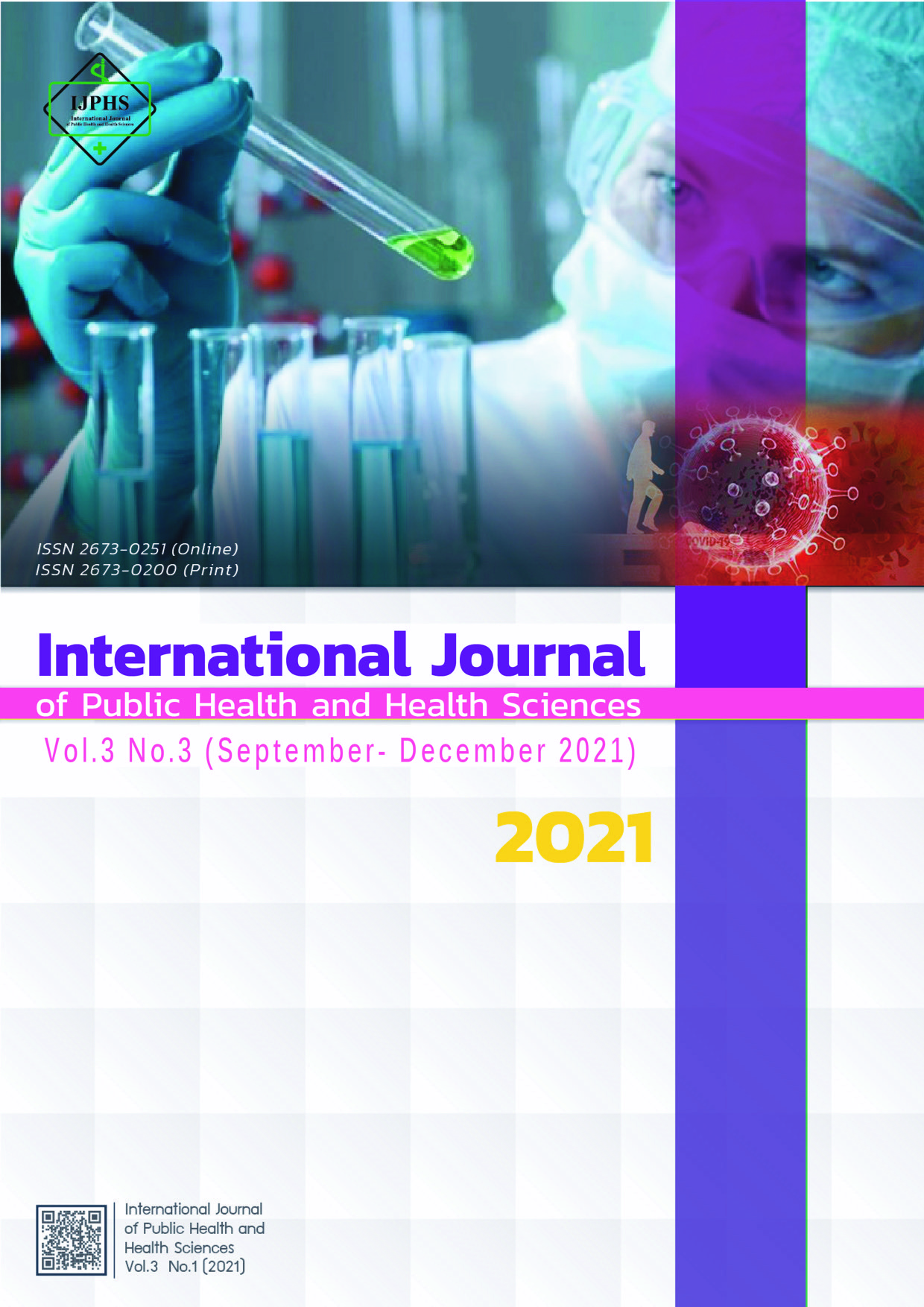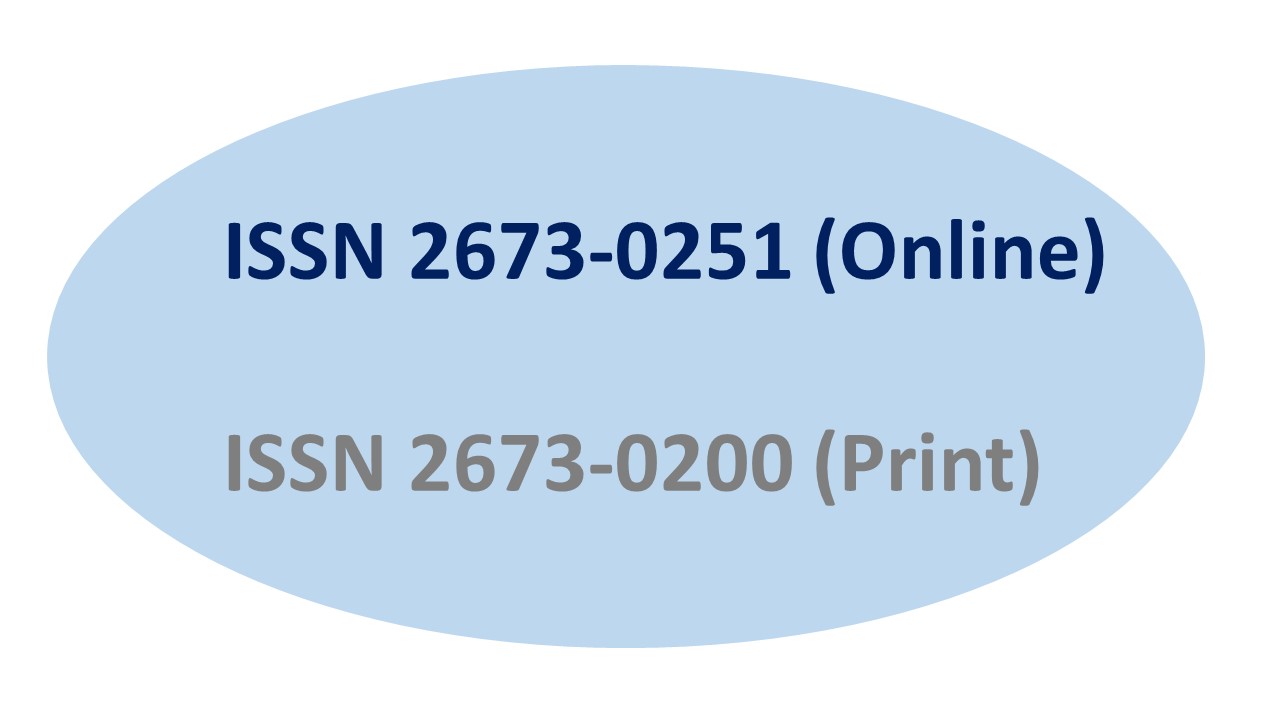Components and Indicators of Humanistic Care Characteristics of Nursing Students under Praboromarajchanok Institute, Thailand Ministry of Public Health
Keywords:
Humanized care characteristics, Components and indicators, Nursing studentsAbstract
This exploratory factor analysis aimed to determine components and indicators of humanistic care characteristics among nursing students. Our study subjects included five hundred fourth-year nursing students who were studying at nursing colleges of Ministry of Public Health in the third semester of the 2016 academic year. We deployed a stratified sampling technique. To extract factors, we used both exploratory factor analysis and principal components analysis with orthogonal rotation by Varimax method. Results showed that humanistic care characteristics of nursing students at PI had 4 components representing 15 indicators from the questionnaire. The four components included: 1) appreciation and pride (6 indicators), 2) ashamed about lying to their patients (3 indicators), 3) holistic care and empathy (3 indicators) 4) understanding the community and accepting one's own mistakes (3 indicators). Based on these findings, we suggest that executive management at PI and affiliated colleges should strengthen nursing training for all four components and 15 indicators by incorporating these components into policies and by explicitly defining them in PI’s strategic plan. At the college level, lecturers should integrate these components with theoretical teaching, hands-on practice, and curriculum enrichment activities to promote concrete and sustainable humanistic care in nursing students.
References
Chantaweemueang,W., and Thongmikwan, T.. Nursing students and spiritual well-being
development. Journal of the College of Nursing and Public Health Network, Southern Region 2016; 3: 208 - 219. (In Thai).
Chantadong, B..Experiences of having patient complaints on service behaviors of professional nurses. 2011. Master thesis, Chulalongkorn University. (In Thai).
Chuangpanich, U. Nursing of patients with humanistic care: caring for cancer patients receiving
chemotherapy. Srinakarin Vejsarn 2007; 22: 51-54. (In Thai).
Hair, F.J. , Black, C.W., Babin, J.B., Anderson, E.R.. Multivariate Data Analysis 7th ed. New Jersey: Pearson Education; 2010.
Hanuchareonkul, S.. Special Lecture 7: Directions of Nursing Education for Quality and Access to Health Services at the 14th National Nursing Conference in Honor of His Majesty the King in the auspicious year of His Majesty King Bhumibol Adulyadej 7th, December 5 2011. Quality and access to service: the mission of Nurses. Quality and Accessibility of Health Service: Nurse 'Challenges, 56 - 64. Nurses Association of Thailand. Bangkok: AP Graphic Design and Printing; 2011. (In Thai).
Inthawat, J., Bunsak, T. and Chantarakasem, N.. Paradigm in humanistic care will make the students be able to look after the patients happily. Journal of Peace Studies Review. 2017; 5, 376– 387. (In Thai).
Kittiraktrakul., S.. et al. The development of a model of the mental service network with the
humanistic care of the colleges under the Praboromarajchanok Institute Journal of Nursing Division 2011. 38: 16-30. (In Thai).
Kleiman, S. Human Centered Nursing: The Foundation of Quality Care. Philadelphia: F.A. Davis; 2009.
Ministry of Public Health. The trends of medical litigation is steadily rising. 2019.
https://www.hfocus.org/content/2019/01/16725
Nimitanand, N. and Durongritthichai, W. Community Health Nursing: Concept, Principle and
Nursing Practice. Bangkok: Chamchuri Product; 2010. (In Thai).
Praboromarjchanok Institute, Ministry of Public Health. Annual Report 2011, Praboromarajchanok Institute. Bangkok: Thai Dance Press Company Limited; 2011. (In Thai).
Suwanchat, P. Nursing and Professional Practices that may be prosecuted. Professional Liability and Nursing Malpractice. Journal of Nursing 2009; 24: 11-13. (In Thai).
Black, P.B. and Chitty, K.K. Professional Nursing Concepts & Challenge. Missouri: Mosby/ Elsevier; 2011.
Tassanun Thaiautvitee, T. and Jumpamool, A. Factors Influencing Patient- Centered Care as
Perceived by Registered Nurses Working in Srinagarind Hospital, Khonkaen University. Srinagarind Medical Journal. 2019; 34, 198-204. (In Thai).
Thamikabowon, S.. Holistic care nursing: a case study of holistic nursing for cancer patients, holistic nursing for heart failure patients. Nonthaburi: Thana Place; 2011. (In Thai).
Udomluck, S., Vongchaiya, P., Tachawisad,S., and Sutjasakulrat, S.. Humanized Health Care Identity among Graduates of Boromarajonani College of Nursing, Phayao. Nursing. Journal of the Ministry of Public Health 2015; 25(3): 14-26. (In Thai).
Wangthong, A., Wangthong, A., Watsaen, T. and Sutharangsi, W.. Perspectives on nursing with
humanistic care in an intercultural area, Nong Chik context, Pattani Province. Journal of
Nursing 2013; 23, 35-44. (In Thai).
Wasi., P. Thai nurses, heart for human. The network of healing that has spread throughout the
country. Bangkok: TSQ Limited; 2010. (In Thai).
Wanchaithanawong, W. Yotthawee, W., Chaiwongkanakphan, J.. The development of awareness of life values for nursing students. J Borommarajonani College of Nursing, Uttaradit. 2017, 9: 112 - 127. (In Thai).
Downloads
Published
Issue
Section
License
If the manuscript is accepted for publication, copyright of the article shall be assigned to the IJPHS. After acceptance of a manuscript, the authors will be requested to complete a copyright transfer agreement form







